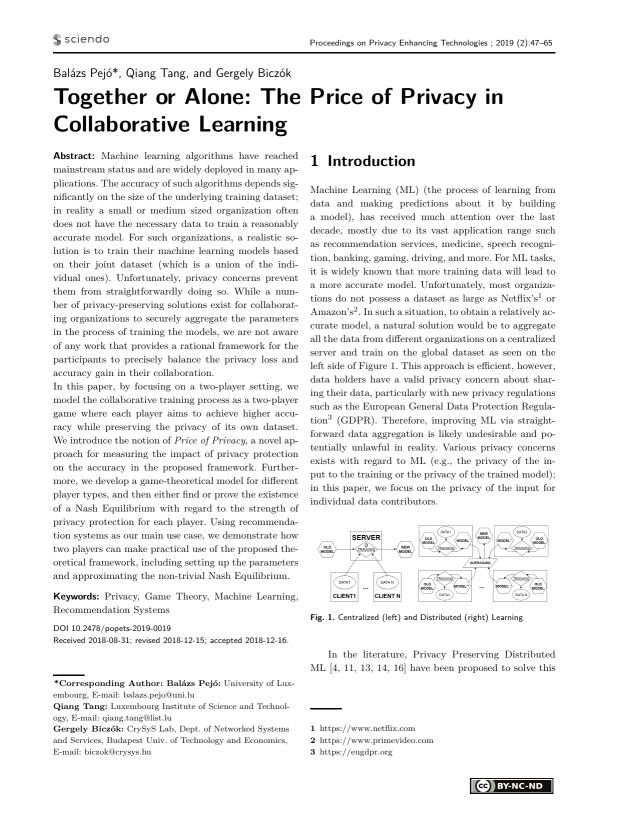Together or Alone: The Price of Privacy in Collaborative Learning
Authors: Balázs Pejó (University of Luxembourg), Qiang Tang (Luxembourg Institute of Science and Technology), Gergely Biczók (CrySyS Lab, Dept. of Networked Systems and Services, Budapest Univ. of Technology and Economics)
Volume: 2019
Issue: 2
Pages: 47–65
DOI: https://doi.org/10.2478/popets-2019-0019
Abstract: Machine learning algorithms have reached mainstream status and are widely deployed in many applications. The accuracy of such algorithms depends significantly on the size of the underlying training dataset; in reality a small or medium sized organization often does not have the necessary data to train a reasonably accurate model. For such organizations, a realistic solution is to train their machine learning models based on their joint dataset (which is a union of the individual ones). Unfortunately, privacy concerns prevent them from straightforwardly doing so. While a number of privacy-preserving solutions exist for collaborating organizations to securely aggregate the parameters in the process of training the models, we are not aware of any work that provides a rational framework for the participants to precisely balance the privacy loss and accuracy gain in their collaboration. In this paper, by focusing on a two-player setting, we model the collaborative training process as a two-player game where each player aims to achieve higher accuracy while preserving the privacy of its own dataset. We introduce the notion of Price of Privacy, a novel approach for measuring the impact of privacy protection on the accuracy in the proposed framework. Furthermore, we develop a game-theoretical model for different player types, and then either find or prove the existence of a Nash Equilibrium with regard to the strength of privacy protection for each player. Using recommendation systems as our main use case, we demonstrate how two players can make practical use of the proposed theoretical framework, including setting up the parameters and approximating the non-trivial Nash Equilibrium.
Keywords: Privacy, Game Theory, Machine Learning, Recommendation Systems
Copyright in PoPETs articles are held by their authors. This article is published under a Creative Commons Attribution-NonCommercial-NoDerivs 3.0 license.

